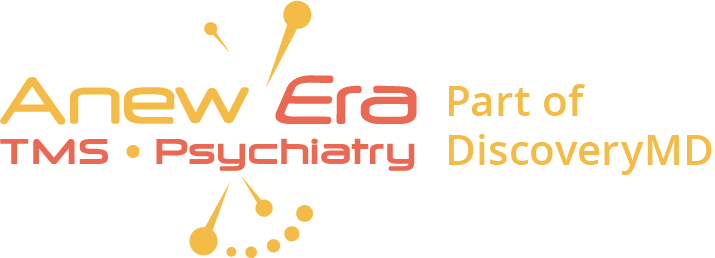How to Overcome OCD
Obsessive-compulsive disorder (OCD) is a chronic mental health disorder that is included in the spectrum of anxiety disorders. Depending on the severity of the OCD, this disorder has the capability of causing serious impairment in daily life. Due to the chronic nature of OCD, it is not reasonable to expect a cure for the disorder, but learning how to manage the disorder is completely attainable.
OCD involves two disordered activities—obsessive thoughts and compulsive actions. Obsessive thoughts, which are rooted in doubt, fear, or guilt, enslave the individual by trapping them in a pattern of repetitive compulsive behaviors. The compulsive behaviors represent a response to the obsessive doubts and fears as a type of anxiety-mitigating activity.
Examples of OCD might look like this:
- John is constantly obsessing about germs. He fears germ exposure so much that the only way to relieve the anxiety associated with the fear of contamination is to wash his hands 20, 30, 50 times a day. The constant need to go wash his hands has become a distraction at work and annoying to family members. His hands have become dry, cracked, and raw.
- Emily has a deep fear of inadvertently setting the house on fire. Her obsessive worries and thoughts lead her to compulsions, such as repeatedly checking if the hair straightener is turned off, if the oven and stove are turned off, if the lights are turned off, if the electric blanket is turned off, etc. Emily’s obsessive thoughts around the fear of setting the house on fire may ultimately keep her trapped inside the house. Her fears are so distorted that she doubts her abilities to keep the home safe in her absence.
- Dave has an obsessive need for order. He becomes extremely anxious when there is chaos in his environment, so Dave calms himself down by compulsive neatness. He arranges items in his living space just so, and with a focus on symmetry. When someone moves an item or leaves the house in a different state than he had so carefully arranged, he becomes agitated, hostile, and stressed until order is restored. This can lead to interpersonal problems at home and work.
What Causes OCD?
There is little understood about the cause of OCD at this time. A genetic component has been identified, as it does tend to run in families. Another related cause could be the obsessions and/or compulsive behaviors that a child observed and then modeled in adulthood.
There has been some progress made in understanding OCD by neuroimaging studies. These brain scans show that certain areas of the brain are functioning differently in those who have OCD, compared to those without the disorder. As such, it is understood that OCD is primarily a neurobiological disorder that may be influenced by environmental factors.
Treatment for OCD
By treating OCD the goal is to achieve reduction in symptoms and to learn methods that help reduce stress. To achieve this, a combination of medication and psychotherapy, particularly cognitive behavioral therapy (CBT) and Exposure and response prevention (ERP) are utilized. Therapy sessions can be on a one-on-one basis or in a group format. Family therapy is also helpful as a treatment element.
Medication for OCD generally begins with antidepressants. These might be Prozac, Paxil, Zoloft, or fluvoxamine. It sometimes takes trialing a few different drugs, or adjusting dosing, before finding a medication that will be both safe and effective.
How to Overcome OCD When Drugs Do Not Help
Unfortunately, about 50% of the individuals seeking relief from OCD through antidepressants will not achieve a successful result. Either the drugs that were trialed were ineffective in treating the OCD symptoms, or the side effects were intolerable. Someone wondering how to overcome OCD if the medications were not helpful may find relief through the brain stimulation technique called transcranial magnetic stimulation, or TMS therapy.
TMS was FDA-cleared in 2008 to treat medication-resistant major depressive disorder. Over the ensuing decade, TMS has also been found to help anxiety disorders, such as PTSD, generalized anxiety disorder, and OCD. TMS is non-invasive, so it does not involve surgery, require any hospital stays, or general anesthesia. TMS is very well tolerated by patients and does not require any down time following the treatment sessions.
How TMS Helps Individuals With OCD
When all else has failed to alleviate the troubling symptoms of OCD, TMS therapy is transformative. Giving new hope to medication-resistant OCD sufferers, TMS uses its magnetic fields to induce stimulation in targeted areas of the brain’s frontal cortex.
During a TMS session, the doctor will position a coil over the individual’s scalp to direct the magnetic pulses to the appropriate area of the brain, the medial frontal cortex. The patient will feel and hear a light tapping sensation as the MRI-type technology delivers the magnetic fields. Once they penetrate the scalp, electrical currents are induced that stimulate the brain tissue to recalibrate neurotransmitters and brain networks. The TMS treatment protocol for OCD is 4-6 weeks with 5 sessions per week for optimal results.
An article published in the MD Edge Psychiatry Journal in 2017 reported on a TMS randomized pilot study for 50 patients with OCD. After three weeks, the medication-resistant participants who received the TMS therapy had a 25% reduction in symptoms.
Another multicenter double-blind study of TMS for OCD patients also demonstrated a mean improvement in symptoms for 26% of the study participants.
Anew Era TMS & Psychiatry is a Leader in the Field of TMS Therapy
Anew Era TMS & Psychiatry is an Orange County-based provider of TMS therapy for the treatment of depression and anxiety disorders, including OCD. The expert mental health professionals at Anew Era TMS & Psychiatry offer TMS therapy as an alternative or adjunctive therapy in the treatment of OCD. If you are wondering how to overcome OCD, especially if anti-depressants and/or anti-anxiety medications did not help, reach out to Anew Era TMS & Psychiatry today at (888) 503-1549.





